Evening anxiety, often experienced as a surge of stress and worry as the day winds down, affects millions of people around the world. It can make it difficult to relax, interfere with your sleep, and ultimately impact your overall quality of life. Unlike general anxiety that might flare up at any time, evening anxiety specifically hits during the later hours, often when you’re trying to unwind. In this in-depth article, we’ll explore what evening anxiety is, what causes it, and provide practical tips to help you control it. Whether you’re struggling with sleepless nights or constant worry as bedtime approaches, understanding the root causes and triggers of your anxiety is the first step toward reclaiming your calm.
This guide is designed to offer actionable advice and insights that can help you reduce your nighttime anxiety and improve overall well-being. For additional expert perspectives, reputable sources like Mayo Clinic and Healthline provide further information on managing anxiety.
What Is Night Anxiety?
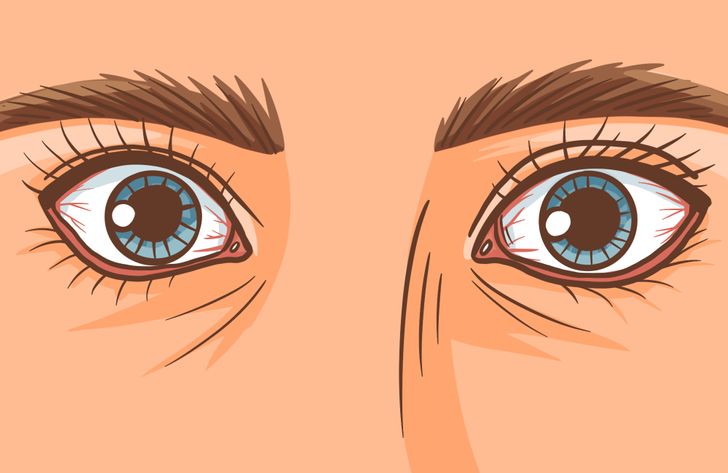
Night anxiety, also known as evening anxiety, refers to a state of heightened worry and stress that specifically occurs during the later hours of the day. This form of anxiety can manifest as racing thoughts, physical tension, and restlessness right when you’re trying to wind down for the night.
Key Characteristics of Night Anxiety
- Increased Worry: As the day ends, unresolved stressors and concerns tend to resurface, leading to heightened anxiety.
- Physical Symptoms: Common signs include a rapid heartbeat, sweating, muscle tension, and even gastrointestinal discomfort.
- Sleep Disruption: Night anxiety can make it extremely difficult to fall asleep, causing insomnia or fragmented sleep patterns.
Understanding the specific nature of night anxiety is crucial, as it allows you to target your interventions and establish routines that address the unique challenges of evening stress.
For a deeper dive into anxiety symptoms and treatment options, visit Healthline’s anxiety resource.
What Causes Us to Develop Night Anxiety?
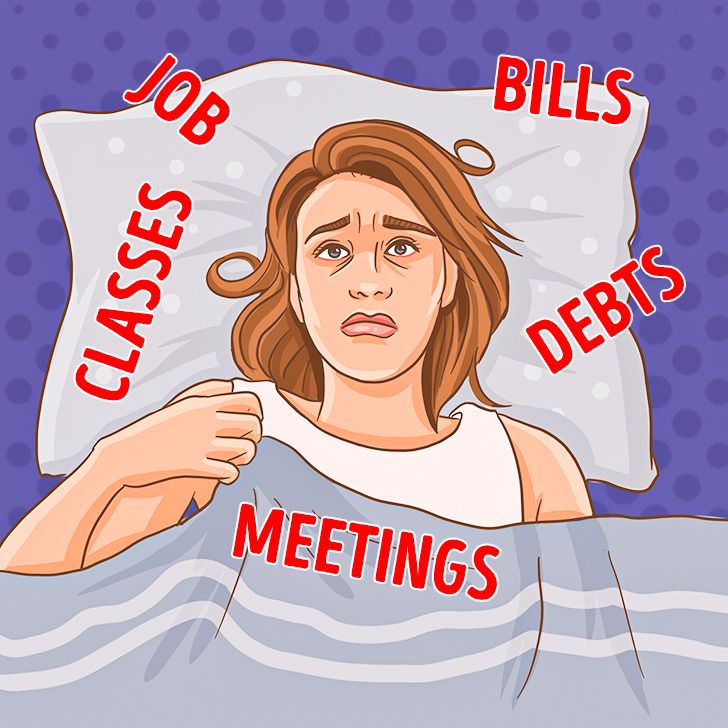
Multiple factors can contribute to the development of evening anxiety. It’s rarely one single cause but rather a combination of physiological, psychological, and lifestyle elements that culminate as the day winds down.
Common Causes of Evening Anxiety
- Accumulated Stress: Over the course of a busy day, stress can build up. Without proper outlets, these stressors may manifest as anxiety in the evening.
- Hormonal Fluctuations: The body’s circadian rhythm can influence hormone levels, such as cortisol and melatonin, which play a role in stress response and sleep. An imbalance may contribute to heightened anxiety at night.
- Environmental Triggers: Quiet and solitude, while often considered positive for relaxation, can sometimes allow for intrusive thoughts to take over.
- Lifestyle Habits: Poor diet, lack of exercise, and irregular sleep patterns can exacerbate anxiety. For instance, consuming caffeine or sugar later in the day might disrupt your natural wind-down process.
Addressing these underlying causes through lifestyle modifications and stress management techniques is key to mitigating evening anxiety.
For more on the causes of anxiety, check out Mayo Clinic’s overview on anxiety disorders.
Try to Detect What It Is About a Situation That Triggers Anxiety
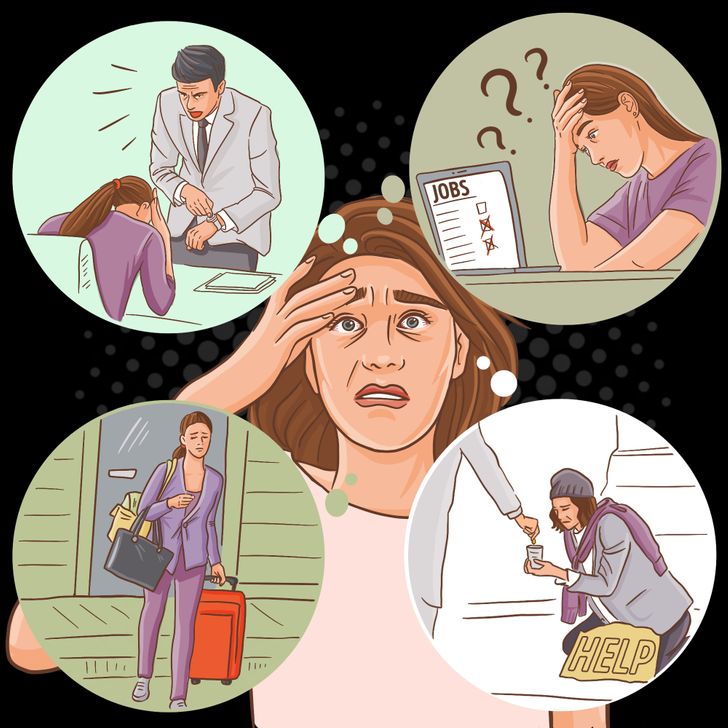
One of the most effective ways to control evening anxiety is by identifying and understanding what specifically triggers your stress. By recognizing these triggers, you can work on strategies to either avoid or cope with them more effectively.
Identifying Your Triggers
- Journaling: Keeping a daily journal can help you pinpoint the events or thoughts that lead to heightened anxiety in the evening. Write down what happened during the day and how you felt as night approached.
- Mindfulness and Reflection: Engage in mindfulness practices to become more aware of your emotional responses. Reflect on the situations that cause anxiety and consider why they affect you.
- Professional Guidance: Sometimes, working with a therapist or counselor can help you identify underlying issues that may not be immediately apparent.
Practical Strategies for Trigger Management
- Cognitive Behavioral Techniques: Challenge negative thoughts and reframe them in a more positive, realistic manner.
- Develop Coping Mechanisms: Whether it’s deep breathing, meditation, or a short walk, having a set of coping strategies ready can help you manage anxiety triggers when they occur.
For more detailed strategies on managing anxiety triggers, explore Psychology Today’s resources on anxiety management.
Stay Busy During the Day: How an Active Schedule Reduces Evening Anxiety
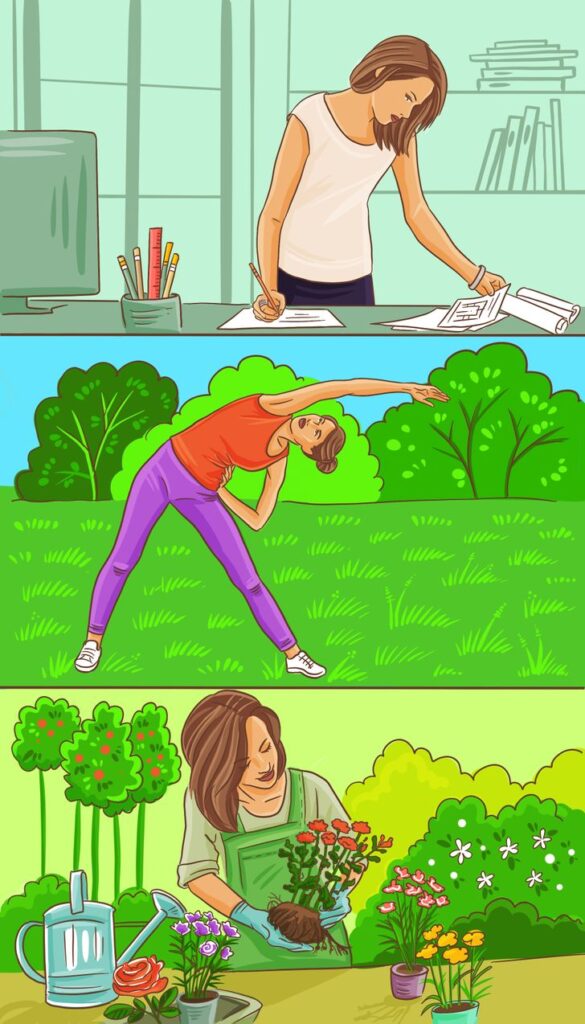
One common recommendation for reducing evening anxiety is to maintain an active and engaging schedule throughout the day. When your mind is occupied, it is less likely to dwell on stressors as night approaches.
Benefits of a Busy Day
- Reduced Rumination: Keeping your mind engaged with tasks and activities prevents the build-up of negative thoughts that can contribute to anxiety at night.
- Enhanced Productivity: Staying busy can boost your overall productivity, which in turn can lead to a sense of accomplishment and reduced stress.
- Improved Sleep: A well-structured day with planned activities can help regulate your circadian rhythm, making it easier to fall asleep at night.
Tips to Stay Engaged
- Plan Your Day: Use planners or digital calendars to organize your tasks and set achievable goals.
- Incorporate Physical Activity: Exercise not only helps reduce stress but also improves sleep quality. Even a short walk can make a difference.
- Take Regular Breaks: Ensure you take time to relax and recharge, but avoid long periods of inactivity that might lead to afternoon slump and evening anxiety.
For further guidance on time management and productivity to reduce stress, visit Harvard Business Review.
Have a Nighttime Routine: Establishing Calming Habits Before Bed
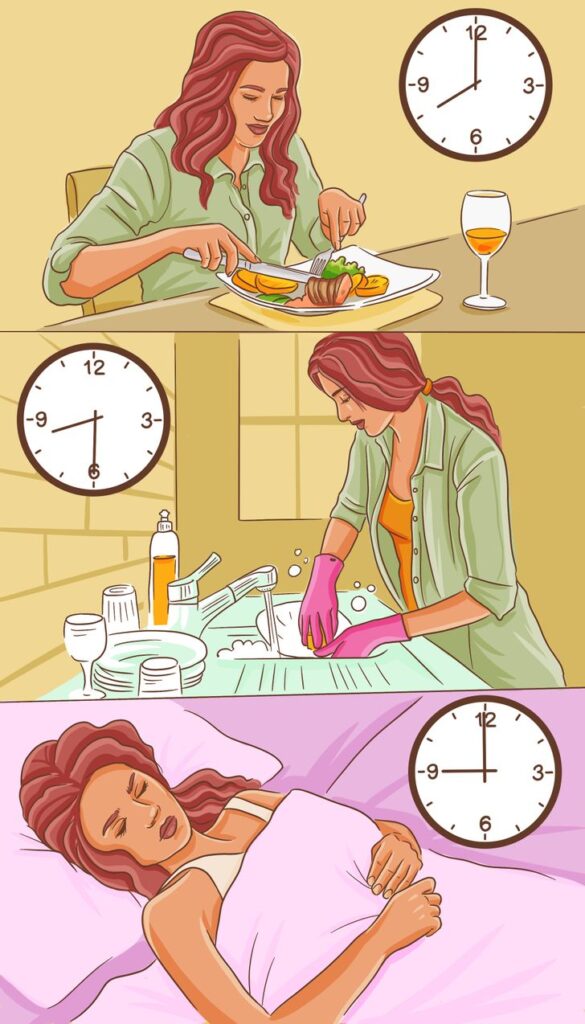
Creating a consistent nighttime routine can significantly reduce evening anxiety by signaling to your body that it’s time to wind down and prepare for sleep.
Building Your Nighttime Ritual
- Set a Consistent Bedtime: Going to bed at the same time every night helps regulate your body’s internal clock and improves sleep quality.
- Limit Screen Time: Reducing exposure to blue light from smartphones, computers, and televisions at least one hour before bed can help your brain transition into a relaxed state.
- Relaxing Activities: Incorporate calming activities such as reading, taking a warm bath, or listening to soothing music to ease your mind and body.
- Mindfulness and Meditation: Practices like meditation or deep breathing exercises can further reduce stress and promote relaxation.
Creating a Personalized Routine
- Tailor It to Your Needs: Everyone’s ideal bedtime routine is different. Experiment with various activities until you find a combination that works best for you.
- Prepare Your Environment: Make sure your bedroom is conducive to sleep by keeping it cool, dark, and quiet.
- Limit Stimulants: Avoid caffeine and heavy meals close to bedtime to prevent any interference with your sleep cycle.
For more on creating effective nighttime routines, check out Sleep Foundation’s sleep tips.
Eat Healthy: The Impact of Nutrition on Evening Anxiety
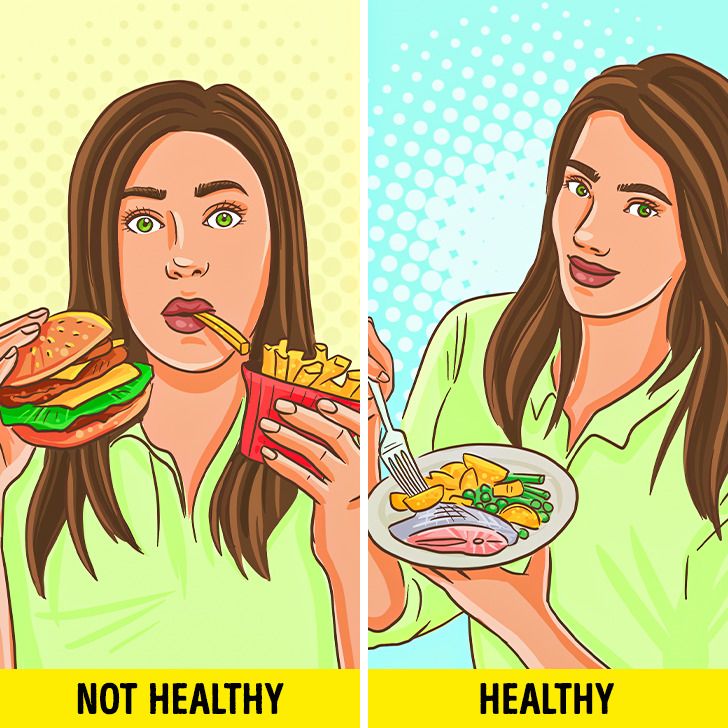
Diet plays a pivotal role in how you feel, both physically and mentally. What you eat throughout the day can significantly influence your stress levels and overall anxiety, especially in the evening.
Nutritional Factors Affecting Anxiety
- Balanced Diet: A diet rich in whole foods, lean proteins, healthy fats, and complex carbohydrates helps stabilize blood sugar levels and reduces the risk of mood swings.
- Anti-Inflammatory Foods: Inflammation has been linked to increased anxiety. Foods such as leafy greens, berries, and fatty fish can help reduce inflammation and promote brain health.
- Micronutrients: Vitamins and minerals like magnesium, B vitamins, and omega-3 fatty acids are essential for nerve function and stress regulation. A deficiency in these nutrients can contribute to anxiety.
Practical Dietary Tips
- Plan Your Meals: Meal planning can help ensure that you’re consistently consuming nutrient-dense foods throughout the day.
- Avoid Processed Foods: Limit your intake of processed foods, which are often high in sugars and unhealthy fats that can trigger mood swings.
- Stay Hydrated: Dehydration can exacerbate feelings of anxiety. Aim to drink plenty of water throughout the day.
- Mindful Eating: Pay attention to your eating habits and try to avoid emotional eating, which can lead to weight gain and further stress.
For more comprehensive nutritional advice, visit Harvard T.H. Chan School of Public Health’s nutrition resources.
Avoid Energy Drinks: Why Stimulants Can Worsen Nighttime Anxiety
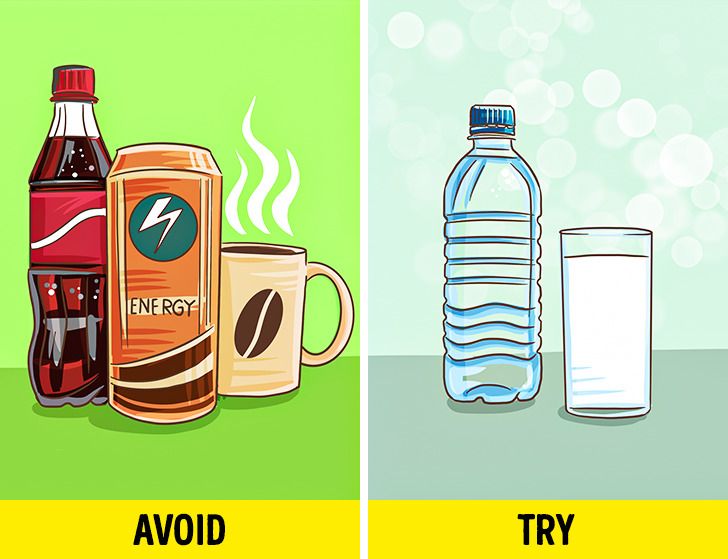
Energy drinks are a popular choice for a quick boost, but they often contain high levels of caffeine and sugar, which can interfere with your sleep and exacerbate anxiety, especially in the evening.
How Energy Drinks Affect Your Body
- Increased Heart Rate and Jitters: The high caffeine content in energy drinks can cause increased heart rate and nervousness, making it harder to wind down at night.
- Sleep Disruption: Consuming stimulants later in the day can interfere with your circadian rhythm, resulting in difficulty falling asleep and poor-quality sleep.
- Sugar Crash: Energy drinks often lead to a spike in blood sugar followed by a crash, which can trigger mood swings and contribute to anxiety.
Healthier Alternatives
- Herbal Teas: Opt for calming herbal teas such as chamomile, peppermint, or valerian root, which can promote relaxation without the negative side effects of caffeine.
- Water and Natural Juices: Staying hydrated with water or freshly squeezed juices is a better option for maintaining energy without disrupting your sleep.
- Gradual Reduction: If you’re used to consuming energy drinks, gradually reduce your intake to avoid withdrawal symptoms and improve sleep quality.
For more on the effects of caffeine on anxiety, refer to Mayo Clinic’s caffeine guidelines.
Conclusion: Take Control of Evening Anxiety for Better Sleep and Well-Being
Evening anxiety can be a significant barrier to achieving restful sleep and maintaining overall mental health. By understanding its root causes—whether it’s accumulated stress, lifestyle habits, or nutritional imbalances—you can adopt effective strategies to manage and reduce nighttime anxiety. From trying to detect and address triggers to staying busy during the day, establishing a calming nighttime routine, eating a balanced diet, and avoiding energy drinks, each step contributes to a healthier, more relaxed evening.
Implementing these techniques consistently can help you take control of your anxiety, improve your sleep quality, and enhance your overall quality of life. Remember, the journey to a stress-free evening begins with small, actionable changes that compound over time. Experiment with these strategies, adjust them to suit your lifestyle, and gradually build a routine that works for you.
For further reading on anxiety management and sleep improvement, be sure to explore trusted resources like Healthline, Mayo Clinic, and Psychology Today. Embrace these practices and take the first step toward a calmer, more restful night, leading to a healthier, happier you.
This article is for informational purposes only and does not substitute professional medical advice. Always consult a healthcare provider for personalized recommendations on managing anxiety and improving sleep.









Leave a Reply